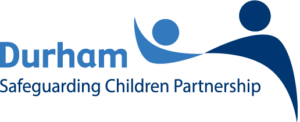The Durham Safeguarding Children Partnership Annual Report 2024/2025 is now available on our Annual Reports page.
News
Safeguarding Week 2025
The booking for Safeguarding Week 2025 is now open
Dates: Monday 17 November to Friday 21 November 2025
The theme of this year’s week is ‘Identification of Risk Across the System’ . We have free sessions on Microsoft Teams running each day covering 4 sub-themes of:
- Harm Outside the Home
- Child Sexual Abuse
- Domestic Abuse
- Cumulative Harm
We have amazing facilitators delivering across the week, some of which we have commissioned as lived experienced speakers and all experts in their field.
Places on some sessions are limited so book quickly to avoid disappointment. Complete one booking form per participant and select all the courses you would like to attend.
Whole Family Approach Guidance
The purpose of this guidance is to set out a shared understanding and meaning of the whole family approach across the partnership. It is the responsibility of all agencies to ensure that the working and including families is central to everything we do within our daily practice.
Problems can arise when we lose sight of the Whole Family and only focus on one child or limited adults. Work with families and recognising the value their knowledge and perspective offers to the planning for the child is an essential part of safeguarding. It helps practitioners to develop an understanding of the whole lived experience of the child, and what internal and external factors contribute to their uniqueness and helps them to remain safe from harm.
See Whole Family Approach Guidance.pdf (Tri-x document) to access the guidance document.
Multi-Agency Reflective Supervision Guidance
The Multi-Agency Reflective Supervision Guidance Document has been development as recent audits and improvement work tells us that the recommended multi-agency reflective supervisions aren’t taking place and there isn’t an avenue for practitioners to reflect as a multi-agency team especially in the most complex and challenging of cases where practitioners can become ‘stuck’.
See Multi-Agency Reflective Supervision Guidance.pdf (Tri-x document) to access the guidance document.
Information sharing: Harm Outside of the Home (HOTH)
It is only through sharing information that agencies or organisations and practitioners build a richer picture of the day-to-day life of the child and family they are working with.
We have developed an Information Sharing Agreement to provide a framework to share information to safeguard children and young people, specifically when considering information relating to HOTH.
It sets out clear expectations and the importance of timely, informed, respectful and purposeful gathering and sharing of information.
Information Sharing – How we share information in Durham
Sharing information could change a child’s life; if you think a child is at risk, you can share information to protect them from harm and to provide the right help at the right time which allows us to safeguard children and provide support at an early stage.
It is not necessary to seek consent to share information for the purposes of safeguarding and promoting the welfare of a child provided that there is a lawful basis to process any personal information required.
Find out more by accessing the DSCP training package which will support you in your role to share information to safeguard children and young people. The course covers:
- learning from practice in Durham
- information sharing in the context of safeguarding; a strong emphasis on prevention, and;
- sharing within the lawful basis of ‘public task’ rather than consent
Training can be found at Information sharing – How We Share in Durham (durham-scp.org.uk)
For further information contact DSCP Business Unit; DSCPSecure@durham.gov.uk

